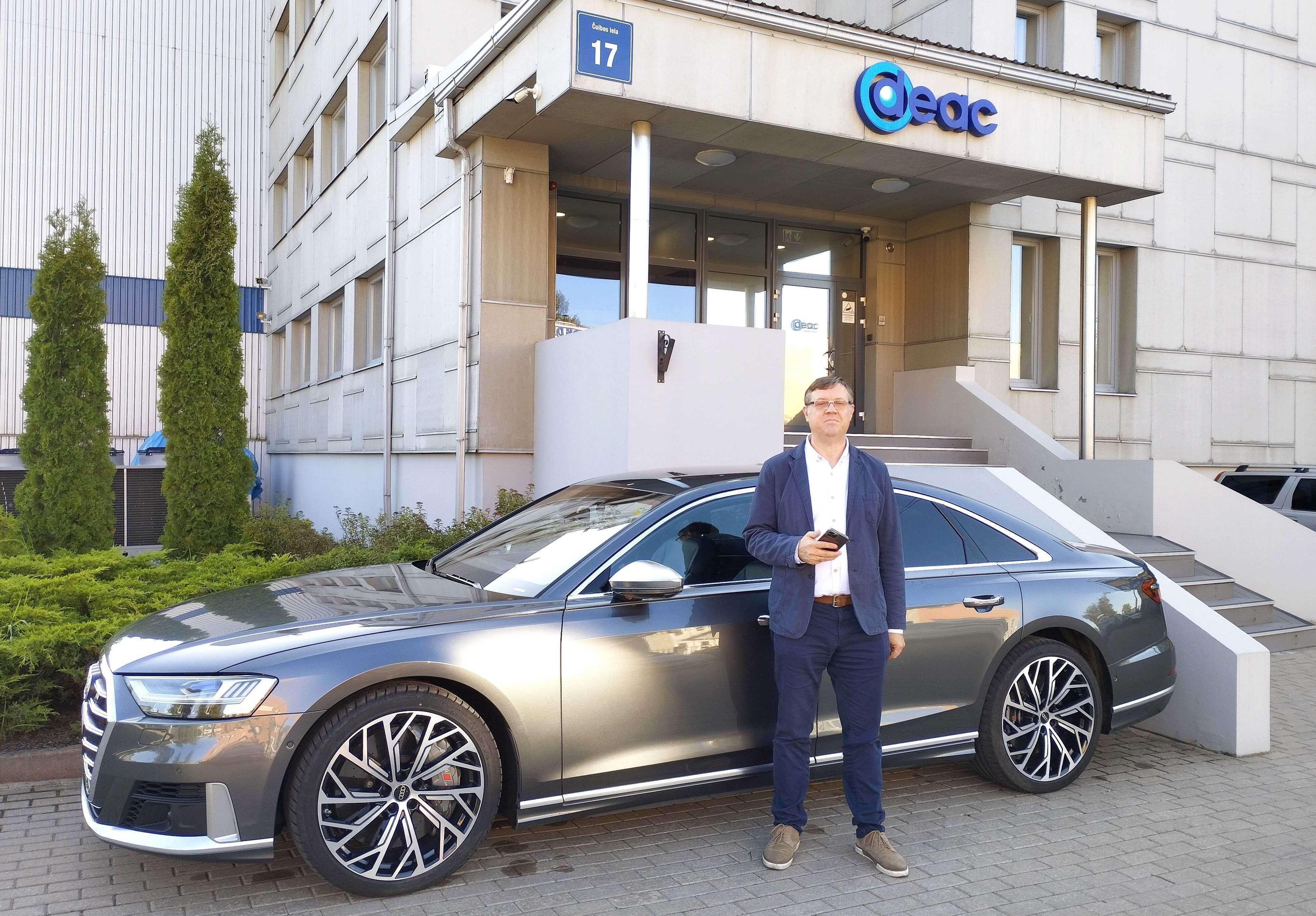
Nowadays, cars generate a large amount of data from cameras, radars, and other information-gathering equipment. These advanced driver-assistance systems (ADAS) require data for cruise control, emergency braking, and blind spot detection.
Machines depend on this data to drive and react to what is happening. Due to these conditions, collecting, processing, and analyzing data from cars is one of the current trends in the automotive industry. And we believe it will only gain momentum in the coming years.
The latest generation of cars is equipped with the same technologies as smartphones and tablets. Many maintain a constant connection to the Internet and regularly send all kinds of data to a central server. Therefore, the maintainers of apps, platforms, and similar digital products have access to plenty of information about each customer - where and when they drove, where they stopped, how many minutes they stood, etc.
Those who receive cloud services provider’s prepared monthly reports on the movement of the smartphone connected to the account, have already found with joy or horror that the company has registered their every step, every visit to every store, and even counted how many kilometers they covered on foot, bicycle, car, or plane. The service provider knows very well in which places we stay the longest, and therefore, can easily calculate the place of living, working, or studying. Even our closest relatives often don’t know where we have been over the weekend, but the various service providers know it all well with an accuracy of a few meters.
As cars become smarter, data volumes will grow exponentially. Integrated cloud solutions into the car’s multimedia system will open opportunities for generative artificial intelligence, which will allow drivers to have a real conversation with the car both to find out information about the technical condition and about places of interest on the route. After collecting and processing the information, generative artificial intelligence will allow the system to continuously learn, create new content and adapt to the driver’s priorities.
Thanks to increasingly intelligent technologies, the collection, processing and analysis of automotive data has become one of the current trends in the automotive industry, and we believe it will become an even more relevant topic in the future.
Even when manufacturing cars, factories worldwide generate and process vast amounts of data to create vehicles and intelligently organize the production process. Engineers need data visualization, real-time fault detection, and similar capabilities. For these reasons, the automotive industry is turning to cloud solutions and integrating cars into the Internet of Things (IoT) network and sending data from devices to the cloud to improve the driving experience. The necessary and valuable data about the car’s status, technical condition, and traffic situation are obtained by connecting the devices to the cloud platform.
Electric cars also exchange information about weather conditions, road quality, and other helpful information with data centers. Storing this data in a public cloud is the most accessible option, but such a decision can become expensive as volumes grow. The issue of data privacy is also essential, considering how strict the big cloud storage owners are about data collection. For these reasons, car manufacturers increasingly choose to store data in the cloud, which is built based on their own or rented data centers.
Private or hybrid cloud solutions can be built for increased security of data storage. Private or hybrid cloud solutions will be more cost-effective in the long run. By maintaining its own data center, the IT infrastructure and maintenance cost is on the car manufacturer, including personnel and electricity. Therefore, the model of car manufacturers collaborating with IT service providers is becoming more popular, and customized advanced solutions can be built using cloud providers' experience and infrastructure.
When building DEAC’s new data center in Riga, which will already be the third and one of the most modern and greenest data centers in the Baltics, we foresee the possibility of adapting both the data center infrastructure itself to the needs of large customers, and our R&D department can also develop innovative, technically advanced solutions adapted to the needs of the industry.
Also, considering the investments by our investor Swiss Quaero Capital Group, also consisting of Lithuanian companies Data Logistics Center and Skaidula, to further develop new data centers and networks, we are becoming stronger not only in the Baltics but also in other European cities, such as Frankfurt and Amsterdam with our points of presence (PoP).
Regarding data security in data centers, we meet the highest security standards and offer security solutions, such as backup, disaster recovery, DDoS protection and more. Information is transmitted over the network in an encrypted form, and access to data from the outside is challenging due to electronic and physical security systems. There must be a high motivation to access such data to make it worth trying to break through all the defense systems. However, we always emphasize and remind our customers about the need for additional security measures, as business risks are often high.
Back
 Flexible service
Flexible service
Superfast and tailored solutions for specific and complex requirements.
 Fast customer support
Fast customer support
Choose the most convenient way to receive fast DEAC support 24/7.
 Experienced IT experts
Experienced IT experts
Professional and certified IT support 24/7.
